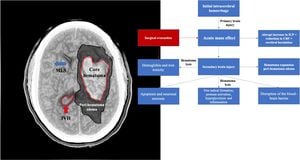Just before handing over the reins of power to Donald Trump, Joe Biden took the extraordinary step of granting preemptive pardons to several Trump critics and family members, aiming to shield them from potential political retribution by the incoming administration.
Among those pardoned were prominent figures such as Dr. Anthony Fauci, the former chief medical adviser, and General Mark Milley, who had publicly criticized Trump’s actions during his presidency. Biden’s decision, made just minutes before Trump’s inauguration on January 20, 2025, reflects his deep concern over the safety and well-being of those who disagreed with Trump’s policies and rhetoric.
“The granting of these pardons should not be misconstrued as acknowledgment of wrongdoing,” Biden stated, emphasizing his desire to protect public servants from what he described as “groundless and politically motivated investigations.” This move is viewed as part of Biden's broader efforts to defend democracy and uphold the integrity of public service within the nation.
Barring Fauci and Milley, Biden also pardoned several family members, including his brother James and sister Valerie, citing relentless attacks and threats directed at them as another justification for these extraordinary measures. He explained, “My family is under relentless attacks and threats aimed solely at harming me.”
The pardons were significant as they came at a time when Trump had openly vowed to pursue his critics. During his campaign, Trump mentioned possible legal consequences for his political opponents, adding to Biden’s urgency to protect those who had faced hostility during Trump’s administration.
Fauci, who became the public face of the government’s Covid-19 response, was often targeted by Trump and his allies, embodying the political tensions experienced during the pandemic. “Fauci became a target of rage and attacks from the right,” noted various reports. Fauci’s efforts to prioritize science over populist narratives faced backlash, making his inclusion among those pardoned particularly significant.
Milroy’s criticisms of Trump were also notable. The former general referred to Trump as a “fascist” and condemned the political climate as harmful to American democracy. With the pardons, Biden aimed to preemptively protect figures like Fauci and Milley from potential retaliatory actions taken by the new administration.
Despite the unusual nature of these pardons, historically, outgoing presidents have been known to exercise clemency. Biden's preemptive pardons, particularly those granted without formal charges against the recipients, were less common but underscored the unique political climate surrounding Trump’s presidency.
The sentiments expressed by Biden resonate with many who viewed the attacks on Fauci and Milley as symbols of broader challenges facing democracy and governance. Biden articulated his philosophy: “Our nation owes these public servants gratitude for their relentless service to our country.” He characterized the circumstances as “exceptional” and highlighted his deep ethical obligations to take action.
This politically charged atmosphere features the dynamic interplay of democracy, governance, and personal risk for public figures. The actions taken by Biden reflect not only immediate concerns but also the historical threads connecting these contemporary tensions to past political moments.
The fallout from Biden's pardons may generate significant political discourse moving forward, particularly as critics of Trump regroup and seek to rebalance power within government systems. Biden's measure serves as both defense for individuals under threat and as signal to future administrations about the importance of preserving democracy against various forms of political intimidation.
While the past few weeks have seen Biden fulfill his role as defender of the values within his party, the more significant question remains: How will Trump navigate this new political territory, and what impact will these pardons have on the fabric of American politics moving forward?
This unprecedented pivot from Biden acts as both protection for his allies and as controversial defiance against intensifying partisan politics, reiteratively posing challenges to the traditional boundaries of presidential clemency.
Moving forward, as both parties reassess their strategies, Biden’s preemptive pardons could not only shield individuals but also shape the future contours of political strife within the U.S.



